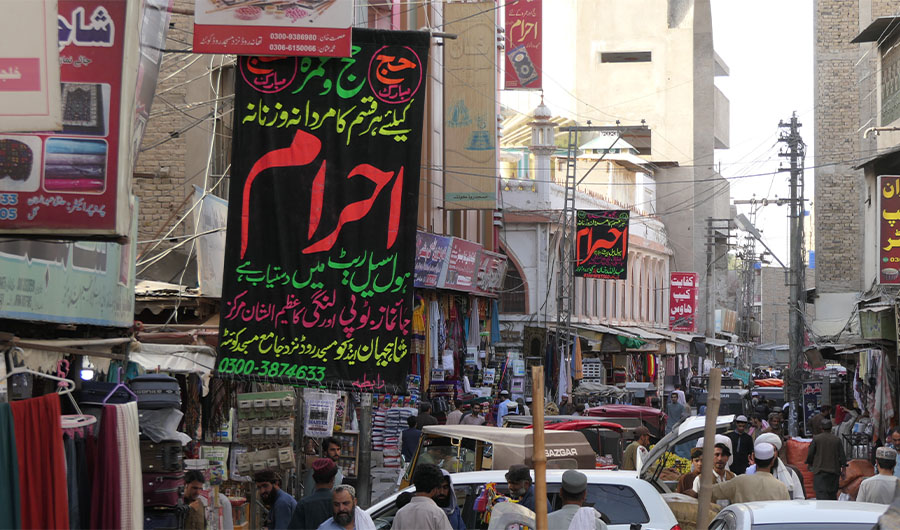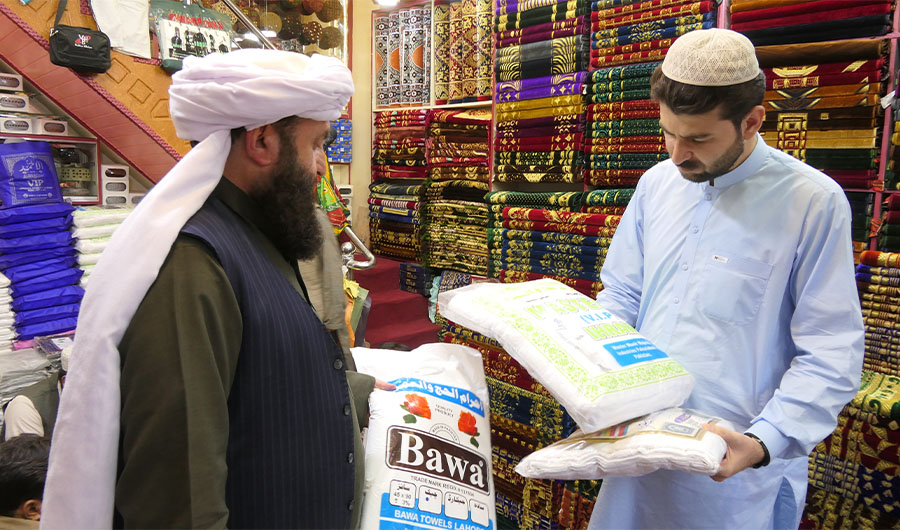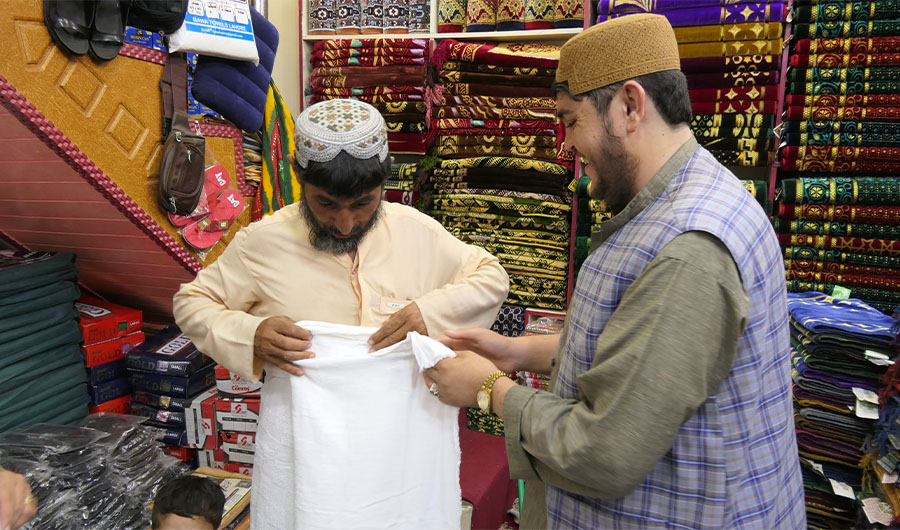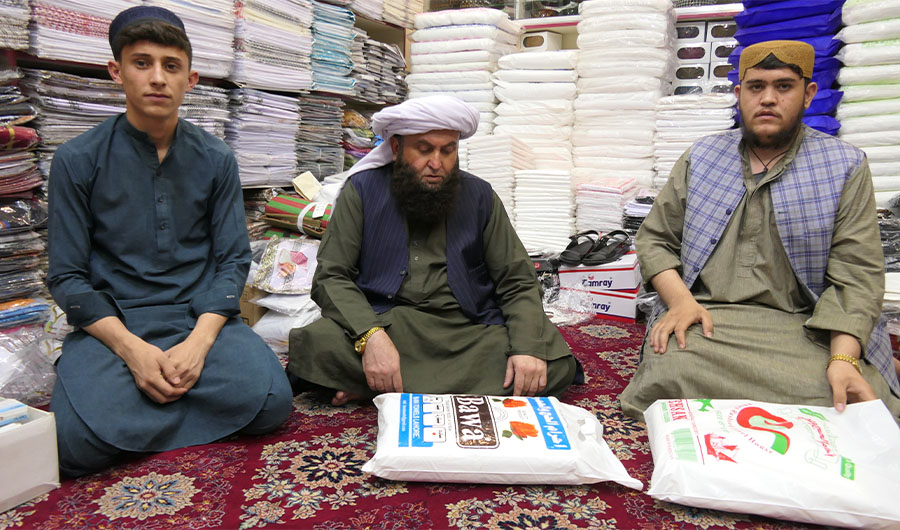QUETTA: As he arranges different varieties of Ihram clothing at his shop in Quetta, Abdullah Jan hopes to attract prospective pilgrims, but he does not expect to earn much during this pilgrimage season, as Pakistan is facing record high inflation that renders many unable to afford the mandatory Hajj clothing.
Ihram is a special four to five-meters-long white garment, a two-piece seamless wrap, that male pilgrims don as they enter the holy city of Makkah to complete their Hajj rituals.
It is available in many varieties, with Turkish, Chinese and Pakistani designs made from wool or cotton threads being most popular among pilgrims.
“The prices of Ihram have gone up by 80 percent this season,” Jan told Arab News at the shop on Masjid Road in downtown Quetta, the capital of southwestern Balochistan province, where his father has been selling religious clothing for the last 60 years.

Shops selling Hajj clothing display their banners in Masjid Road in Quetta, Pakistan on June 16, 2022. (AN Photo)
“The Ihram we used to sell for Rs800 ($4) is now being sold for Rs1,400-1,500,” he said.
One of Islam’s five main pillars of faith, the Hajj was restricted over coronavirus fears to just 1,000 people residing in Saudi Arabia in 2020. Last year, the Kingdom limited the pilgrimage to 60,000 domestic participants, compared with the pre-pandemic 2.5 million.
This year, as the Kingdom has already lifted most of its COVID curbs, it will welcome 1 million pilgrims from abroad. Over 81,000 pilgrims will come from Pakistan, including 5,000 from Balochistan province.
But as the main rituals will begin in the first week of July, many of those who will participate in them will buy just one set of clothing.

Syed Naqeebullah looks at different varieties of Ihram clothing at a shop in Masjid Road in Quetta, Pakistan on June 16, 2022. (AN Photo)
“People who used to buy a pair of Ihrams for the 40-day pilgrimage can now afford only one Ihram, without the prayer beads and rugs that they used to buy as gifts for their friends and family,” Jan said.
Muhammad Amir, who owns the Majeed Towel Factory in Faisalabad, said his production has declined because of a drop in demand orders from across the country. He used to sell about 30,000 pieces of Ihram clothing, but this year his sales dropped by half.

A man pilgrim tries Ihram clothing at a shop in Masjid Road in Quetta, Pakistan on June 16, 2022. (AN Photo)
“Our factory has been sending Ihrams to Rawalpindi, Lahore, Quetta, Peshawar and many other cities of the country,” Amir said. “This season, we have dispatched around 15,000 pieces.”
Syed Naqeebullah arrived in Quetta’s biggest Ihram market to buy the white dress for his father who will depart for Saudi Arabia next week.

Ihram seller Haji Abdullah Jan, center, sits with his sons inside thier shop in Masjid Road in Quetta, Pakistan on June 16, 2022. (AN Photo)
“I have bought a towel Ihram made with wool for my father because it’s more comfortable than the other designs, but I have witnessed an increase in prices,” he said. “A pilgrim has to buy Ihram to start his Hajj journey, hence he pays the amount without caring about the price.”















